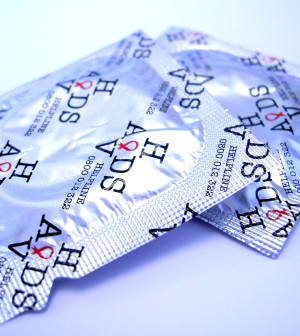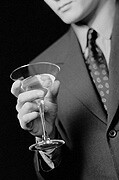- 8 Ways to Increase Dopamine Naturally
- 7 Best Breads for Maintaining Stable Blood Sugar
- Gelatin vs. Collagen: Which is Best for Skin, Nails, and Joints?
- The Long-Term Effects of Daily Turmeric Supplements on Liver Health
- Could Your Grocery Store Meat Be Causing Recurring UTIs?
- Are You Making This Expensive Thermostat Error This Winter?
- Recognizing the Signs of Hypothyroidism
- 10 Strategies to Overcome Insomnia
- Could Artificial Sweeteners Be Aging the Brain Faster?
- Techniques for Soothing Your Nervous System
Jealousy Can Drive Some to Problem Drinking, Study Suggests


Intense jealousy may trigger drinking problems, a new study suggests.
The researchers found that those whose self-esteem was dependent on their relationships were more likely to turn to alcohol if they became jealous. However, the study did not prove that jealousy caused drinking.
But the findings might help identify people at risk for alcoholism, according to the authors of the study, which will be published in the October issue of the journal Addictive Behaviors.
“We all experience feelings of jealousy to some degree; many people are in relationships that are less than ideal, and use alcohol for different reasons,” study author Angelo DiBello said in a journal news release. DiBello is with the psychology department at the University of Houston.
“Romantic jealousy is a shared human experience, but very little work has looked at how it is related to alcohol use, misuse and associated problems. This research helps to highlight the associations between these factors and show how our emotions, thoughts, and behaviors are related in potentially harmful ways,” he explained.
“Ultimately, I hope to use findings like these to support the development of prevention and intervention efforts among individuals who may struggle with alcohol, self-esteem and relationship issues,” DiBello concluded.
The study included 277 American university students who were asked about their romantic relationships and drinking habits.
Excessive drinking is the third leading cause of preventable death in the United States, accounting for 10 percent of deaths among working-age adults, or about 88,000 deaths a year.
More information
The U.S. National Institutes of Health has more about drinking problems.
Source: HealthDay
Copyright © 2026 HealthDay. All rights reserved.










